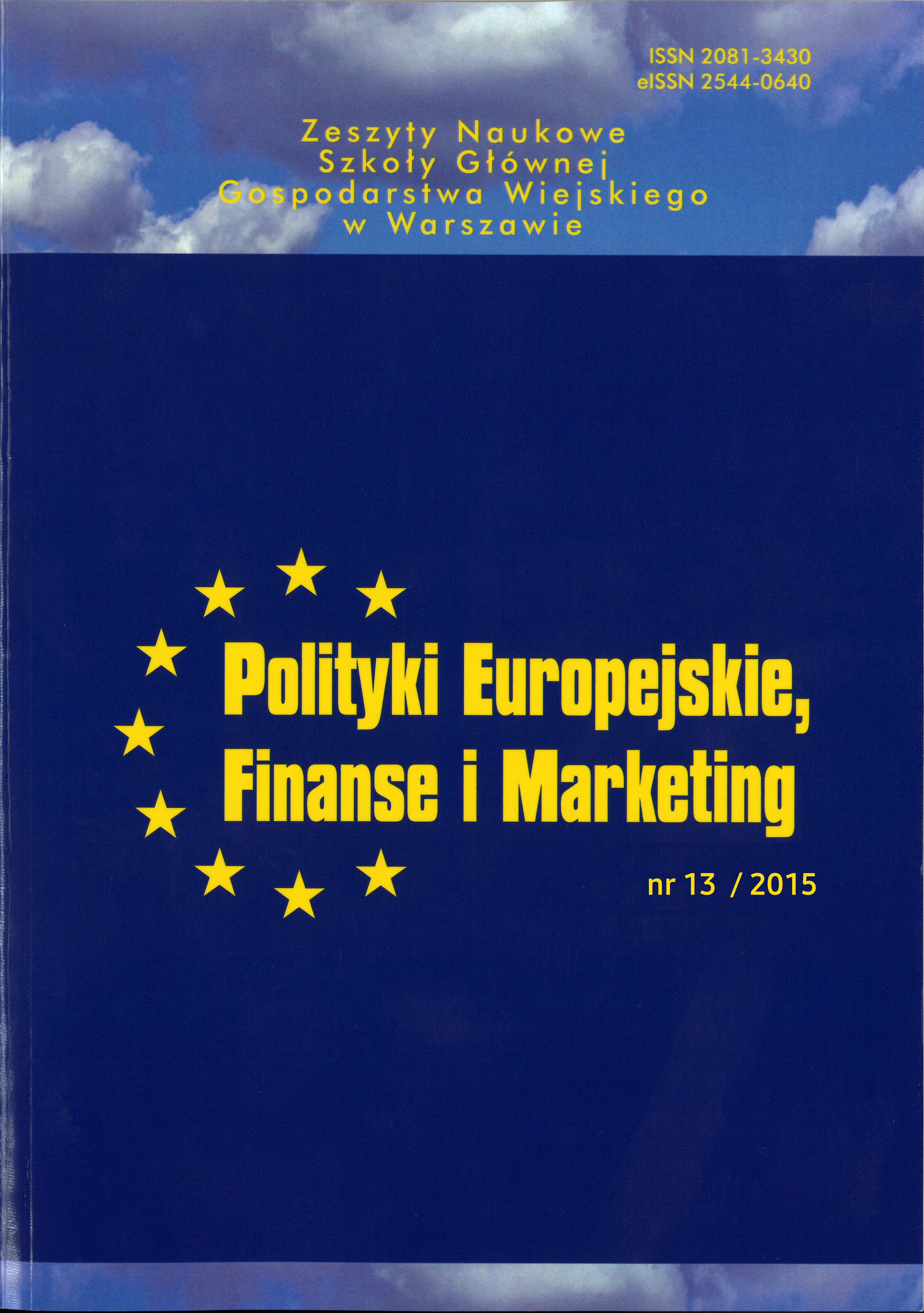Main Article Content
Article Details
Borys T. (red): Wskaźniki zrównoważonego rozwoju, Wydawnictwo Ekonomia i Środowisko, Warszawa-Białystok 2005.
Dobrzańska B., Dobrzański G., Kiełczewski D.: Ochrona środowiska przyrodniczego. Warszawa: Wydawnictwo Naukowe PWN, Warszawa 2010.
European Commission Communication 2015: 2030 framework for climate and energy policies in the period 2020-2030. http://ec.europa.eu/clima/policies/2030/index_en.htm (dostęp: 14.02.2015),oraz: Single market for green products initiative,http://ec.europa.eu/environment/eussd/smgp/index.htm (dostęp: 14.02.2015).
Mazurek-Łopacińska K., Sobocińska M.: Marketing wobec wyzwań wynikających ze zrównoważonego rozwoju" [w:] marketing - ujęcie terytorialne. Wydawnictwo Politechniki Gdańskiej, Gdańsk 2010.
Nidumolu R., Prahalad C.K., Rangaswami M.R.: Zrównoważony rozwój: główny motor dzisiejszych innowacji, Harvard Business Review Polska nr 85/2010.
Skowron S., Szymoniuk B.: Marketing and sustainable development, Problemy Ekorozwoju (Problems of Sustainable Development), vol.9, nr 2/2014, s. 39-46.
Sztucki T.: Encyklopedia marketingu, Wydawnictwo Placet, Warszawa 1998.
Szymoniuk B.: Marketing ekologiczny: utopia czy konieczność? [w:] Przedsiębiorczość i wiedza w kreowaniu rozwoju regionalnego, red. E. Bojar, E. Mieszaj kina, Politechnika Lubelska, Lublin2014, s. 77-85.
Szymoniuk B.: Dilemmas with brand management in clusters, Zeszyty Naukowe Polityki Europejskie Finanse i Marketing, nr 9, SGGW, Warszawa 2013. (Crossref)
Zaremba-Warnke S. (red.): Marketing ekologiczny, Wydawnictwo Uniwersytetu Ekonomicznego we Wrocławiu, Wrocław 2009.
Downloads
- Barbara Wąsikowska, APPLICATION OF COGNITIVE NEUROSCIENCE TECHNIQUES IN MARKETING MANAGEMENT , The Scientific Journal European Policies, Finance and Marketing: No. 13(62) (2015)
You may also start an advanced similarity search for this article.
- Barbara Szymoniuk, CLUSTER AS A NETWORK OF STAKEHOLDERS ACCORDING TO THE ASSUMPTIONS OF MARKETING 3.0 , The Scientific Journal European Policies, Finance and Marketing: No. 17(66) (2017)
- Barbara Szymoniuk, Dilemmas with brand management in clusters , The Scientific Journal European Policies, Finance and Marketing: No. 9(58) (2013)

This work is licensed under a Creative Commons Attribution-NonCommercial 4.0 International License.
All articles published in European Policies, Finance and Marketing are fully open access. In this way, the scientific research results contained in articles published in our journal are available to every reader free of charge - in accordance with the CC BY-NC license (https://creativecommons.org/licenses/by-nc/4.0/).
According to the CC BY-NC license you are free to:
- Share — copy and redistribute the material in any medium or format
- Adapt — remix, transform, and build upon the material
The licensor cannot revoke these freedoms as long as you follow the license terms.
Under the following terms:
- Attribution — You must give appropriate credit , provide a link to the license, and indicate if changes were made . You may do so in any reasonable manner, but not in any way that suggests the licensor endorses you or your use.
- NonCommercial — You may not use the material for commercial purposes .
- No additional restrictions — You may not apply legal terms or technological measures that legally restrict others from doing anything the license permits.
Source: https://creativecommons.org/licenses/by-nc/4.0/deed.en
According to that, the authors retain the copyright and full publishing rights.





